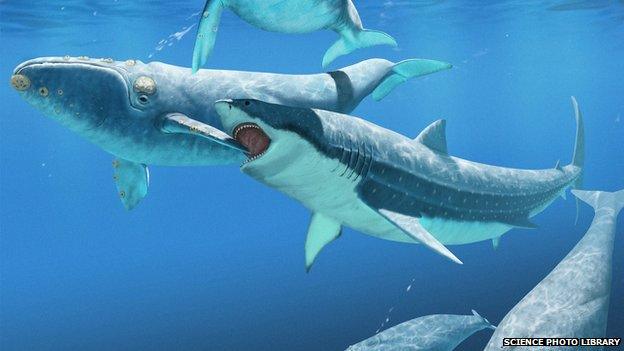Sharks: Scientists say they don't know what the Megalodon looked like
- Published
- comments
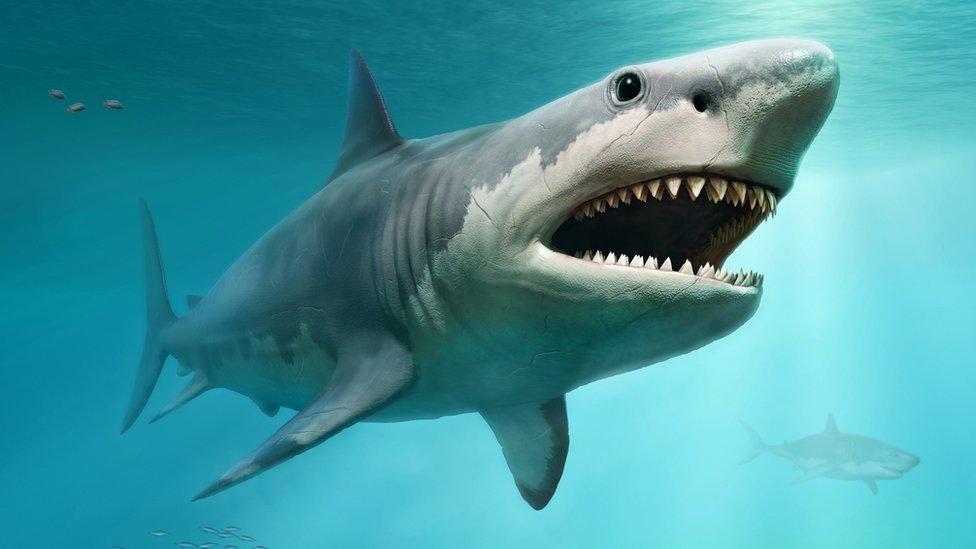
This is one artist's impression of the megalodon, but now scientists say it could look totally different
The Megalodon is one of the largest sharks that ever lived, but a new study claims there's no way of knowing exactly what it looked like.
Based on the huge fossilised teeth and vertebrae, it often depicted as a gigantic great white shark. Although this shows how massive it was, scientists now say there is not enough evidence to show exactly what it looked like.
The gigantic prehistoric creature lived millions of years ago and is thought to be the biggest fish that ever lived.
Experts say they are still hopeful that they could find out if they discovered a full Megalodon skeleton - what they describe as the "ultimate treasure".
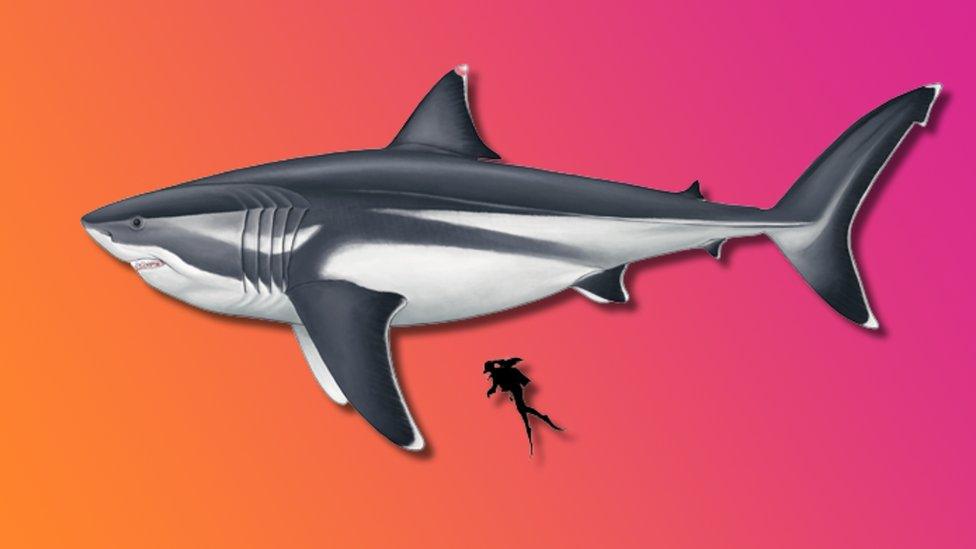
How a human diver might have compared to the real Meg
Previously, by looking at fossilised teeth, over six inches big and vertebrae, experts concluded the Megalodon was similar to the great white shark.
The great white is part of a family called Lamniformes, and scientists then used five species of Lamniformes and averaged their fin and body shapes deciding on a model for the Megalodon.
But a team of researchers from the University of California Riverside looked at all the Lamniformes and concluded that there were no patterns that distinguished the sharks.
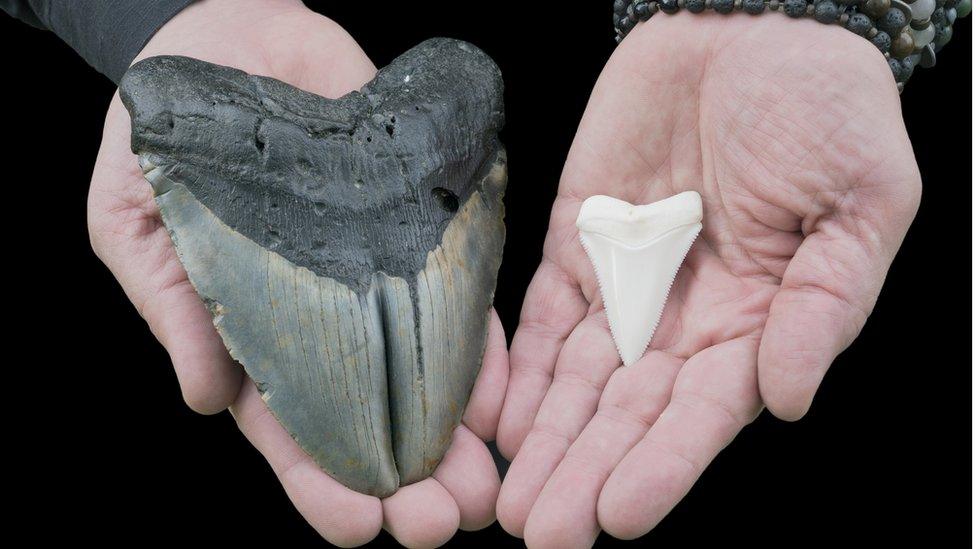
Comparing a Megalodon tooth to a great white shark tooth shows how huge the fish must have been
"The reality," writes a team of researchers led by biologist Phillip Sternes of the University of California Riverside, "is that there are presently no scientific means to support... the accuracy of any of the previously published body forms."
This could have been pointy like a goblin shark or a large mouth like the suitably named megamouth shark.
So although we know the Megalodon was definitely massive (estimated to be as big as 65 feet (20 metres) - what it exactly looked like is still a mystery!
- Published19 February 2019
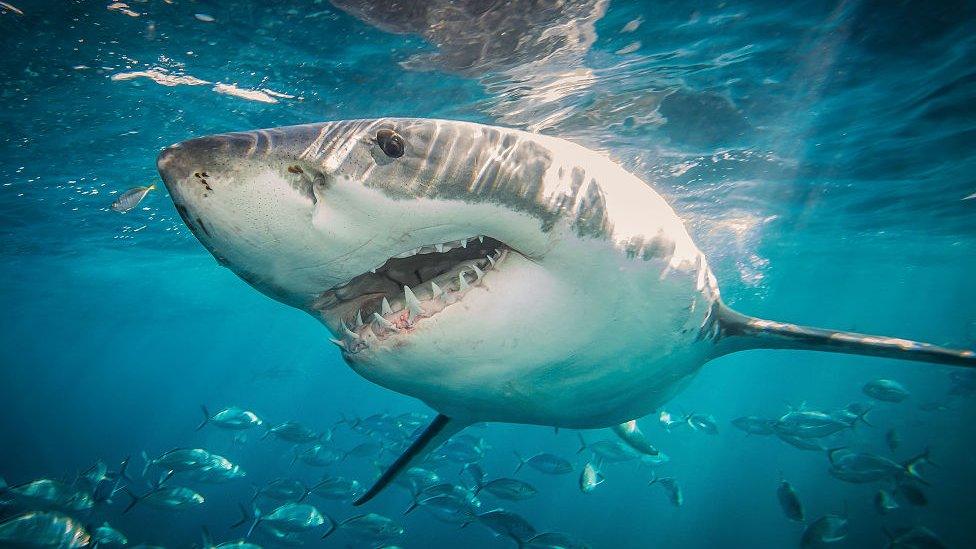
- Published8 June 2022

- Published23 October 2014
